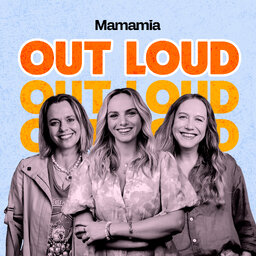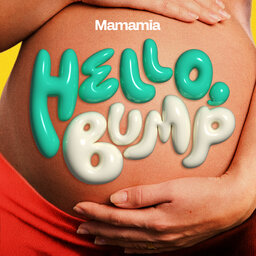Week 40: Why Am I Still Pregnant?
Welcome to Hello Bump, a podcast about what you’re not expecting when you’re expecting.
In this episode, hosts Jana Pittman and Grace Rouvray discover your baby is…fully cooked! At week 40, your baby is mostly just gaining fat and growing bigger and you’re likely feeling pretty heavy and uncomfortable as you wait to give birth. Jana explains how to manage your mental health if your birth plan doesn't go to plan. Plus, Grace asks how long it takes for your uterus to shrink down after birth as well as what to look for in your postpartum recovery.
THE END BITS:
Discover more Mamamia podcasts here.
Email us: podcast@mamamia.com.au
Share your story or feedback. Send us a voice message, and one of our podcast producers will get back to you ASAP.
Are you a mum of a child aged 5 years or under? Are you expecting a little one? We want to hear from you! Complete our survey now for a chance to win a $1,000 gift voucher in our quarterly draw!
CREDITS:
Hosts: Jana Pittman and Grace Rouvray
Executive Producer: Courtney Ammenhauser
Audio Production: Jacob Round
Mamamia acknowledges the Traditional Owners of the Land we have recorded this podcast on, the Gadigal people of the Eora Nation. We pay our respects to their Elders past and present, and extend that respect to all Aboriginal and Torres Strait Islander cultures.
In 1 playlist(s)
Hello Bump
So, you're growing a human inside you. Or you're thinking about it. Join us for the new season of He…Social links
Follow podcast
Recent clips

SUBS: MAMAMIA OUT LOUD TASTER — Jessie and Clare Stephens' Weird Twin Shit Just Got Weirder
04:14

Birth And The First Six Weeks
49:23

Week 39: How Will I Know If I'm Actually In Labour?
11:36
 Hello Bump
Hello Bump